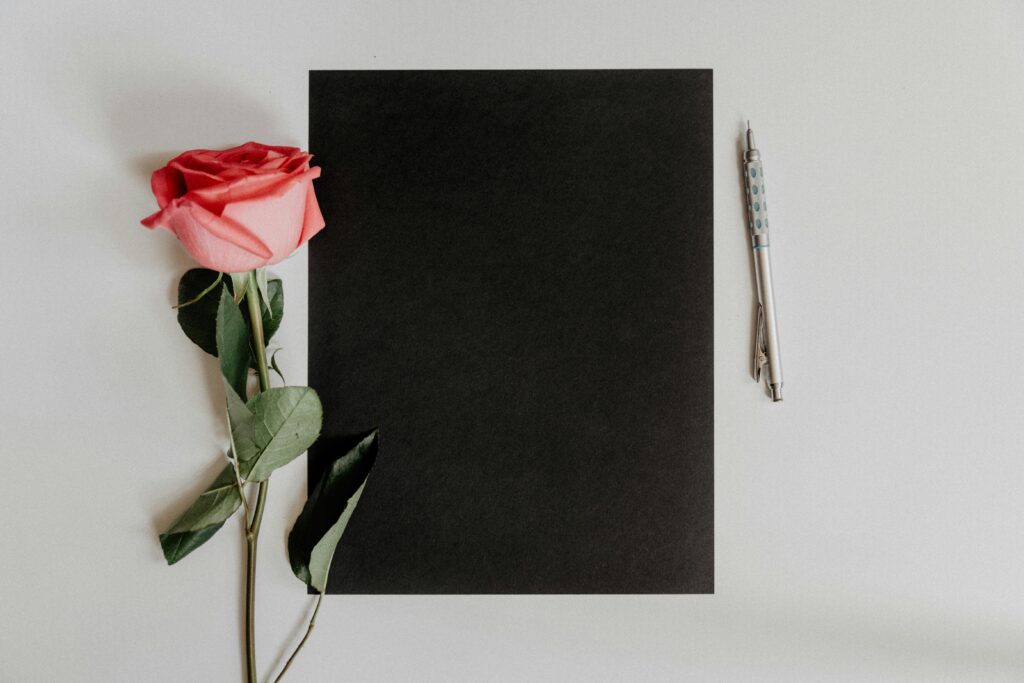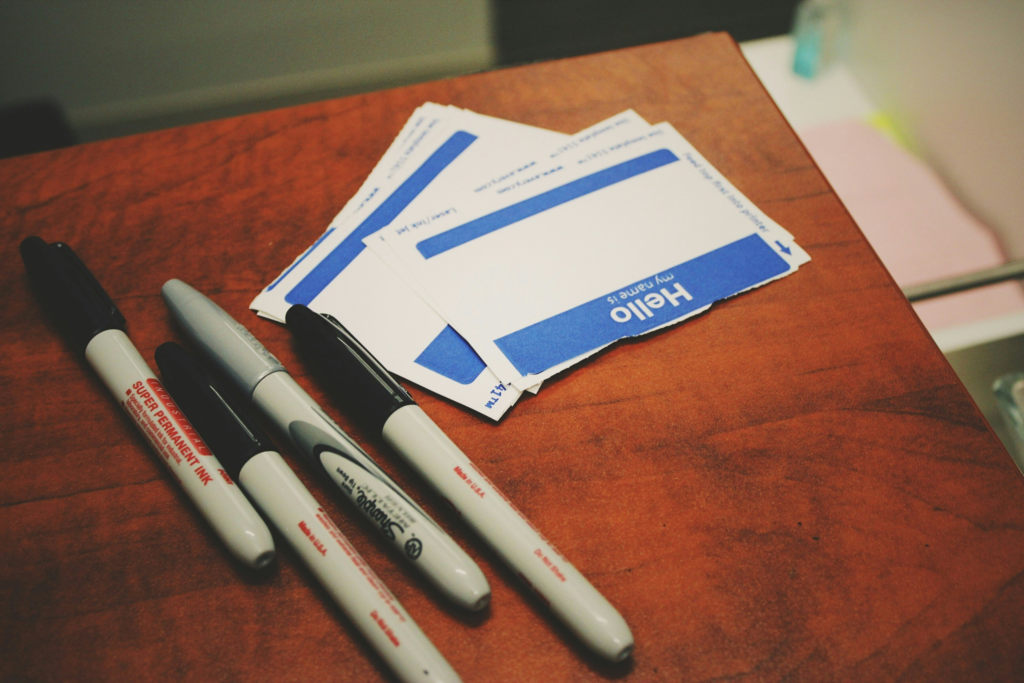Observing the Representation of Mental Health in Poetry

As a poet, I find most of my work centers around my mental health and the struggles I face trying to understand and overcome its difficulties, while navigating life as a young black woman. It’s one of very few things in my life that fulfills my eagerness to write while giving me a mic to share with the world what I’ve been dying to say.
I’m not the loudest or most expressive person you’d meet, so it may come as a surprise to those who are close to me if they read my poetry and see that I’m practically putting a limelight on my emotions – which is extremely the opposite of what I do in real life. Usually, any conversation that starts with How do you feel? prompts me to be silent or give the general I’m okay response if I’ve been specifically asked to comment on my feelings. Besides a few family members that I wholeheartedly have all my trust in, I can’t say that I’m very open to giving others shards of my emotions, hoping they’ll glue the pieces back together to make me whole again.
Poetry gives me a space to say directly what’s on my mind without having to face someone; and I take advantage of it again, and again, and again. In contrast to the academic and traditional approaches of writing “good” poetry, I’m not thinking of how beautiful I can make a poem sound or look but rather, how can I take everything that I’m feeling right now, throw it on a page, and make it sound understandable, at least to me. This also leads me to a writing perspective of mine that I’ve believed in for a while and have heard similarly from the poet, FELISPEAKS, who I’ve had the joy of meeting recently. I remember her saying something along the lines of I don’t write for anyone else, I write for me; and if it somehow resonates with others, that’s great. Since my poetry reflects all of what is deeply personal to me, I can’t say that it’s written with the purpose of resonating with others or adhering to some poetic value that can be widely admired.
However, in essence, that is what creates such a sacred place for poetry that embraces the vulnerability of its writers sharing their mental health – it’s ability to be so beautifully authentic, and true to the writer that it unintentionally creates resonance amongst its readers. I think of the poetry written from other poets that’s steeped in language related to anxiety, fear, anger, hope, etc., and I’m always intrigued by how they’re able to bring representation to their emotions without feeling the need to change or generalize their narrative. Furthermore, this representation is what has paved the way for poets to elevate their voices and draw attention to issues existing in different communities and places around the world. Though we may not hear or see these writers speak aloud, every word on the page carries their emotions so deeply that we feel them in our very bones. And in that exchange of feeling – of connection, lies one of the most profound gifts a writer or reader could ever receive.
When I’m writing about things in my poetry that are personal (or even a twinge “embarrassing”), I know that if I choose to share those poems with others, I lose the privacy that comes with them. The privacy of my poems begin in the notes app of my phone, and if I choose to share them, they upgrade to a Word document on my laptop. Although I’m the only one aware of this process, this is laughably my signal that I’ve released myself from the clenching realization that I’m letting everyone know what’s flying around my head, and that my thoughts will be up for critical feedback and revision. I write heavily about the anxiety I deal with, and choosing to share the poems that detail my anxieties is indication that I’m capable at unwrapping my feelings for others to spectate.
Currently, I’m writing a piece titled, And Where Danger Lies, I Will Try To Attend. It’s probably my most personal piece I’ve written yet, and recounts an experience where I struggled with social anxiety. I have it all bundled up and tucked away in my notes app, where I’m still adding to it and revising from time to time when I feel like tackling its core and structure. Do I plan on sharing this piece at some point in the future? Yes. But am I a bit nervous to do so? Of course. This type of poetry always puts me in a tight spot because, yes, I want to share how I feel, but I also don’t want the pressure of everyone knowing something personal about me. One of the first poems I had the pleasure of coming across that is similar to the content in that poem (and one of my personal favorites) is “Late Summer after a Panic Attack” by Ada Limón. As the title communicates, this poem recounts the frustration, the anger, and the anxiety that has led Limón to a panic attack that feels impossible to escape. The poem states:
I can’t undress from the pressure of leaves,
the lobed edges leaning toward the window
like an unwanted male gaze on the backside,
(they wish to bless and bless and hush).
What if I want to go devil instead? Bow
down to the madness that makes me. Drone
of the neighbor’s mowing, a red mailbox flag
erected, a dog bark from three houses over,
and this is what a day is. Beetle on the wainscoting,
dead branch breaking, but not breaking, stones
from the sea next to stones from the river,
unanswered messages like ghosts in the throat,
a siren whining high toward town repeating
that the emergency is not here, repeating
that this loud silence is only where you live.
Even reading it again (for what feels like the hundredth time), I still think Wow. Throughout the rest of the poem, we’re not just seeing — but feeling the intensity of Limón’s mental health; as well as the representation of what anxiety and panic woven together looks like. This kind of poetry reminds me that by sharing the privacy of our feelings, we pull everyone closer to us and let them know that they are not alone; our struggles are not alone. Even if we share similar experiences, the complexity of the human mind and its emotions could be written a million different ways, and in each way, be as uniquely personal and infinitely layered as the last.
If someone were to ask me when exactly I became interested in writing about my mental health, I’d tell them I’ve always been. However, if they were to ask when I began reading about it, I’d say only recently. Being an English major for the last two years of my undergraduate studies, really opened my eyes to seeking representations of the things I write about as written by other poets. It was also one of the first moments where I was directly asked to research my interests and think deeper about why I write and who I write for. For the longest time, I thought that if I was sharing my poetry, I needed to steer away from the specificity of my personal emotions/experiences that I held tightly within me and give my readers something lighter to focus on. I consider this to be an element I’m working on in my poetry, but also a strength. Honestly, I really enjoy the fact that I can write about something deeply affecting me without giving specificity to what it is that I’m talking about. The only issue is that sometimes my poetry can be abstract, but what is poetry if not abstract to some degree? Isn’t it supposed to make you think harder about its intentionality?
Last year, I had the joy of reading the poem “The Dream of Knife, Fork, and Spoon” by Kimiko Hahn. My very first introduction to Hahn as a poet came from an interview that I read in a journal titled Small Orange Conversations With Poets. Below is the listed poem:
I can’t recall where to set the knife and spoon.
I can’t recall which side to place the napkin
or which bread plate belongs to me. Or
how to engage in benign chatter.
I can’t recall when more than one fork—
which to use first. Or what to make of this bowl of water.
I can’t see the place cards or recall any names.
The humiliation is impressive. The scorn.
No matter how much my brain “revises” the dinner
to see if the host was a family member—
I can’t recall which dish ran away with which spoon.
As a reader, I’m aware of the feeling of anxiety and dissociation being communicated throughout the language in this piece, but can I truthfully say I know exactly what Hahn is talking about in terms of “the dinner”? No, but I have to. I could sit here for ages and place my thoughts on the idea that she’s talking about feeling disconnected in a social setting, but since I have no direct answer on what this piece means exactly for her, I cannot give a clear answer. However, I can empathize. I know what it feels like being stuck in a space that feels unfamiliar, fighting endlessly on a battleground with your thoughts. The lines I feel the most for are: I can’t see the place cards or recall any names. The humiliation is impressive. The scorn. I think to myself, if Hahn was able to write a poem as deep and personal to her without giving the reader direct specificity of its purpose highlighted in every word, then why should I feel the need to be overly specific in mine?
One of the biggest revelations I’ve learned of this genre is that you shouldn’t feel the immediate need to change the way something sounds or looks to satisfy another person’s understanding of your work. Sometimes, it’s just about empathizing (even if it’s to the smallest extent) because the fact that you feel something without even knowing the specifics of it shows that you’re accomplishing exactly what poetry wants you to do; to feel. When poets share the existence of their mental health in their poetry, it’s not necessarily just a way to say how they feel, but exactly what they feel. It’s the humiliation, the scorn – everything that’s brewing inside, aching to be set free. It’s the fear that one day, everything will spill over, and slip further beyond your reach.
It just wouldn’t be right to talk about mental health in poetry without mentioning slam poetry. To every poet that was brave enough to stand on a stage somewhere and tell the world your story, your anger, your pain, your love, your happiness, I appreciate you for sharing a piece of yourself for everyone to hear and feel. For poets like me whose work lives on the page, we are fortunate to have poets from all over the world who continue to turn the page for us, letting their voices remind us of the power that they bring to poetry.
Danez Smith’s “Dear White America”, as many of us might have read or heard, is quite literally the piece for this conversation. From start to finish in this poem, Smith places you in an ocean of thoughts where you have no choice but to reckon with each wave that crashes back at you. Although I’d recommend watching the physical performance of this first, here is the version of it as a poem which is just as incredible as the performance:
i’ve left Earth in search of darker planets, a solar system revolving too near a black hole. i’ve left in search of a new God. i do not trust the God you have given us. my grandmother’s hallelujah is only outdone by the fear she nurses every time the blood-fat summer swallows another child who used to sing in the choir. take your God back. though his songs are beautiful, his miracles are inconsistent. i want the fate of Lazarus for Renisha, want Chucky, Bo, Meech, Trayvon, Sean & Jonylah risen three days after their entombing, their ghost re-gifted flesh & blood, their flesh & blood re-gifted their children. i’ve left Earth, i am equal parts sick of your go back to Africa & i just don’t see race. neither did the poplar tree. we did not build your boats (though we did leave a trail of kin to guide us home). we did not build your prisons (though we did & we fill them too). we did not ask to be part of your America (though are we not America? her joints brittle & dragging a ripped gown through Oakland?). i can’t stand your ground. i’m sick of calling your recklessness the law. each night, i count my brothers. & in the morning, when some do not survive to be counted, i count the holes they leave. i reach for black folks & touch only air. your master magic trick, America. now he’s breathing, now he don’t. abra-cadaver. white bread voodoo. sorcery you claim not to practice, hand my cousin a pistol to do your work. i tried, white people. i tried to love you, but you spent my brother’s funeral making plans for brunch, talking too loud next to his bones. you took one look at the river, plump with the body of boy after girl after sweet boi & ask why does it always have to be about race? because you made it that way! because you put an asterisk on my sister’s gorgeous face! call her pretty (for a black girl)! because black girls go missing without so much as a whisper of where?! because there are no amber alerts for amber-skinned girls! because Jordan boomed. because Emmett whistled. because Huey P. spoke. because Martin preached. because black boys can always be too loud to live. because it’s taken my papa’s & my grandma’s time, my father’s time, my mother’s time, my aunt’s time, my uncle’s time, my brother’s & my sister’s time . . . how much time do you want for your progress? i’ve left Earth to find a place where my kin can be safe, where black people ain’t but people the same color as the good, wet earth, until that means something, until then i bid you well, i bid you war, i bid you our lives to gamble with no more. i’ve left Earth & i am touching everything you beg your telescopes to show you. i’m giving the stars their right names. & this life, this new story & history you cannot steal or sell or cast overboard or hang or beat or drown or own or redline or shackle or silence or cheat or choke or cover up or jail or shoot or jail or shoot or jail or shoot or ruin
this, if
only this one, is ours.
Every line is truly remarkable in the way it catches you – and if you’re watching Smith’s performance of this piece, it gets even better. As a black woman, I feel with my heart, every emotion that this poem speaks back to me. The anger, the fear, the resilience, the feeling of being tired and tired of being let down, it’s all there, and I recognize every centimeter of it. There’s just something so deep, powerful, and alive about being able to hear the poet use their voice to tell us how they feel.
Writing about your mental health and the scars that your experiences have left you doesn’t have to start and end on the page as the previous two poems. Whether your work begins as a poem or ends as one, there’s no reason to not experiment with structure and see just how far you can draw images, empathy, understanding, and resonation for your audience. I’m still learning how to work with different forms within the theme of mental health in my poetry, and I feel I haven’t even hit the edge of the iceberg yet truthfully, I hope I never do. I want to keep creating as many different variations of the things I love to write about and bring representation to the feelings that don’t get to reach the eyes of as many people as they should.
In the literary community, I feel there aren’t many opportunities to express your mental health as a poet beyond trying to get a poem or book published. And even then, you aren’t guaranteed that everyone will get a chance to read and/or resonate with your work. This is not to say that poems about mental health aren’t getting published, but just the realization that a lot of poems of this genre still get overlooked for being too “emotional” and not poetic enough. I remind myself when I’m writing to not focus so much on that aspect and to stay true to myself because truthfully, if my poems aren’t written in honesty, then none of them would truly be meaningful. It is the honesty, and the rawness of it all, that really bridges the writer to their audience and reminds us that we are never alone in thought or feeling.


